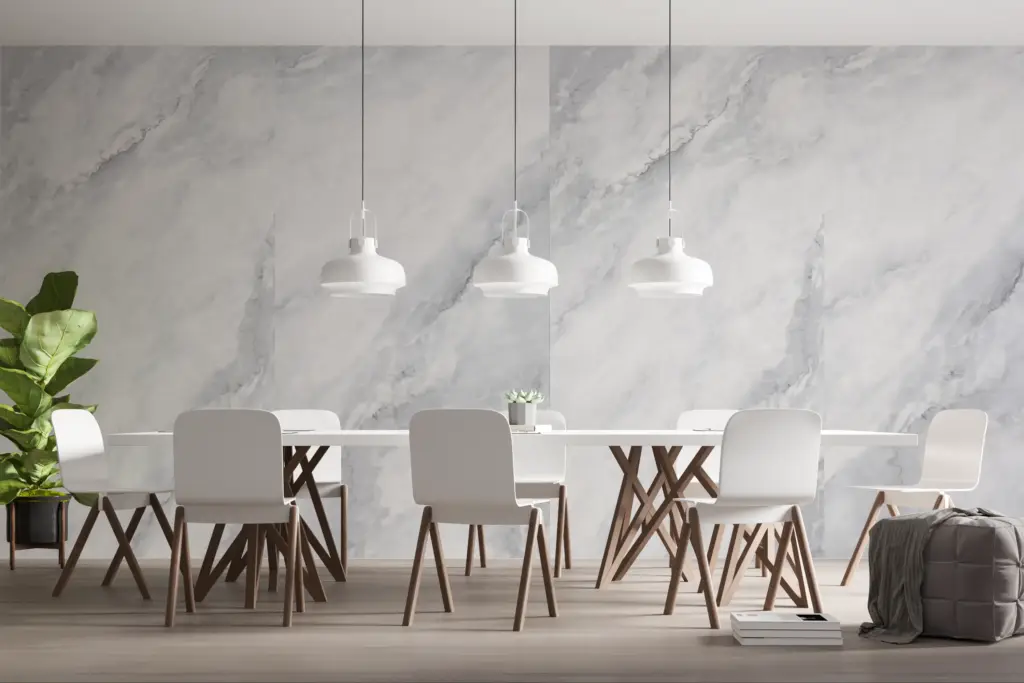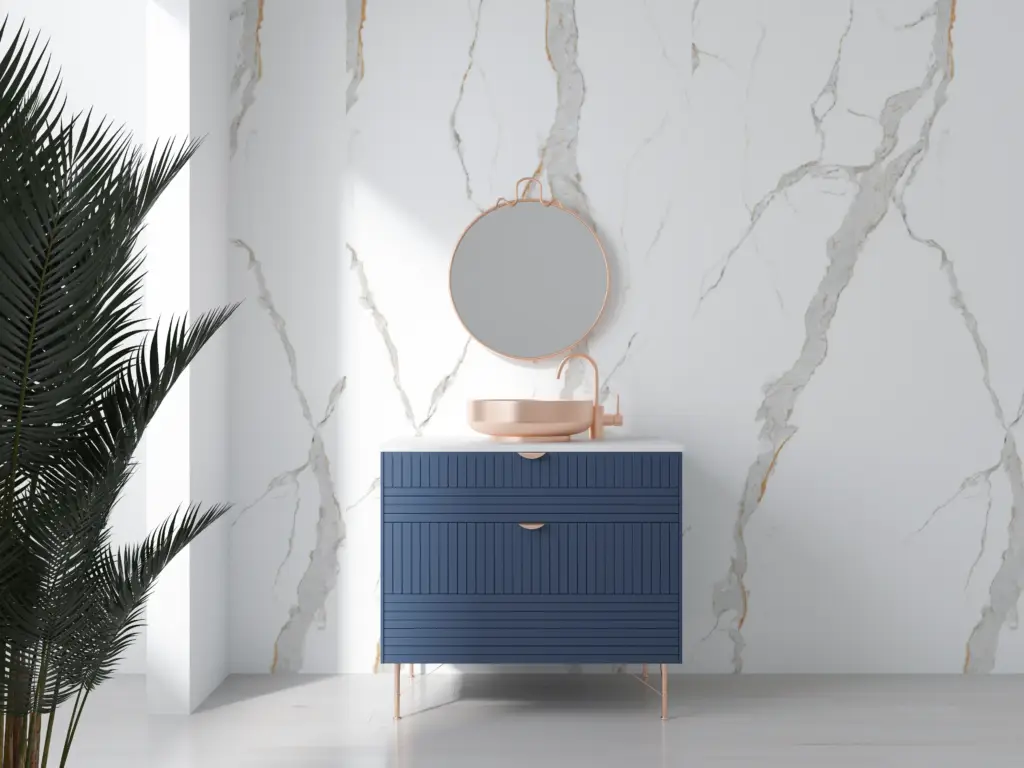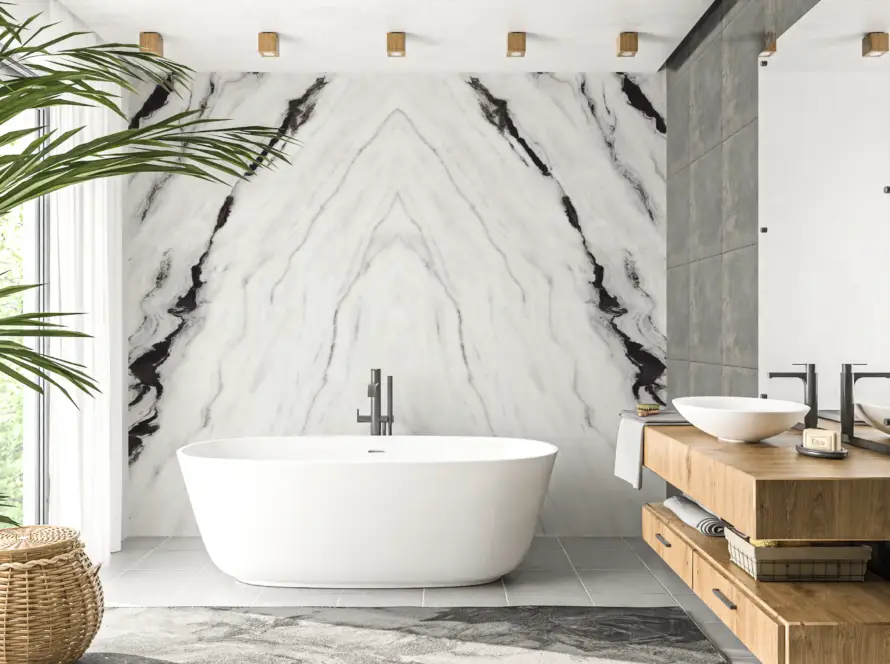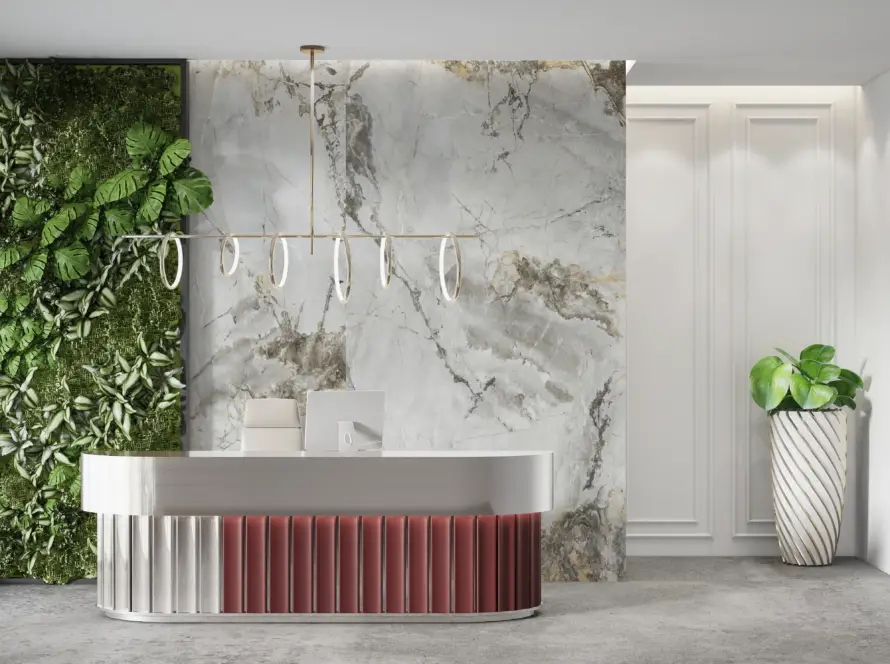Is Porcelain Suitable for Outdoor Use? A Deep Dive into Water and Frost Resistance
When it comes to outdoor surface materials, the challenges are significant. Exposure to rain, humidity, snow, UV rays, temperature fluctuations, and heavy foot traffic means that outdoor surfaces must be built not only for style, but also for survival. That’s where a critical question arises: Is porcelain suitable for outdoor use?
The answer is a resounding yes—but not all porcelain is created equal. In this article, we’ll explore how high-quality porcelain materials, such as those designed by Corvella, are engineered specifically to thrive in outdoor environments. We’ll cover topics like water absorption, freeze-thaw resistance, slip safety, and long-term performance under extreme weather conditions.
1. Understanding Porcelain’s Structure: What Makes It So Durable?
Porcelain is a type of ceramic that is fired at extremely high temperatures—typically above 1200°C. This intense heat vitrifies the material, creating a dense, non-porous surface with extremely low water absorption (generally less than 0.5%). This low porosity is what makes porcelain inherently resistant to staining, water penetration, and structural degradation caused by moisture.
Compared to other common outdoor materials—such as natural stone, concrete, or wood—porcelain offers superior hardness, stain resistance, and durability. It does not warp, swell, or erode over time, making it a top contender for outdoor spaces.
👉 Verdict: Porcelain’s dense structure gives it a critical advantage in outdoor use, especially in wet and cold climates.

2. Freeze–Thaw Resistance: Will Porcelain Crack in the Cold?
One of the main concerns in colder regions is the freeze–thaw cycle. When water infiltrates a porous surface and then freezes, it expands, causing the material to crack or deteriorate over time. This is a common issue with low-grade concrete or untreated natural stone.
Porcelain, with its ultra-low water absorption rate, resists this problem entirely. Since it doesn’t absorb significant moisture, there’s little to no expansion when temperatures drop below freezing. Frost-proof porcelain tiles are especially designed to withstand harsh winters without cracking, chipping, or delaminating.
At Corvella, our outdoor-grade porcelain slabs are tested to ensure compliance with international standards for freeze–thaw resistance, making them suitable for terraces, staircases, facades, and walkways even in Alpine or Nordic conditions.
👉 Verdict: Yes—porcelain is frost-resistant and ideal for cold, wet environments when sourced from trusted manufacturers.
3. UV Resistance: Will Porcelain Fade Over Time?
Unlike paint or some resins, porcelain tiles do not fade or discolor under direct sunlight. The pigments used in quality porcelain manufacturing are baked into the material during firing, not just printed on the surface. This means they’re resistant to UV rays and will retain their color even after years of sun exposure.
This makes porcelain a top choice for exposed areas like pool decks, garden paths, balconies, or outdoor seating zones where color retention and appearance matter just as much as performance.
👉 Verdict: Porcelain is UV-stable and perfect for sun-drenched outdoor areas.
4. Anti-Slip Surface Technology: Safety in All Seasons
Slip resistance is vital in outdoor settings, especially in areas exposed to rain or snow. Polished indoor tiles can become hazardous when wet, but outdoor porcelain tiles are manufactured with textured, anti-slip surfaces that increase traction without compromising on aesthetics.
Corvella’s outdoor porcelain range is available in multiple finishes, including R11-rated surfaces that comply with European slip-resistance regulations—ideal for patios, pool surrounds, garden steps, and public plazas.
👉 Verdict: With the right finish, porcelain tiles provide a safe and slip-resistant outdoor solution.

5. Maintenance and Cleaning: What to Expect Outdoors
Outdoor areas are subject to mud, leaves, spills, and weathering. Natural stone often requires sealing, power washing, and chemical treatments to maintain its appearance.
Porcelain, however, is incredibly easy to clean. Its dense surface doesn’t absorb dirt or water, meaning it can be washed down with a hose or wiped with a neutral cleaner. It also resists moss, algae, and mildew far better than porous alternatives.
👉 Verdict: Low maintenance and high performance make porcelain ideal for outdoor longevity.
6. Where Can You Use Porcelain Outdoors?
Terraces and Patios
Balconies and Rooftops
Outdoor Kitchens
Swimming Pool Decks
Garden Walkways
Outdoor Staircases
Building Facades and Exterior Walls
Porcelain’s modular nature and wide variety of textures, colors, and thicknesses make it a flexible material for any outdoor design vision—from minimalist to Mediterranean.
Built to Last, Styled to Impress
Choosing the right material for outdoor spaces isn’t just about beauty—it’s about making a smart, resilient, and sustainable investment. Porcelain tiles, when properly manufactured and installed, are one of the most reliable outdoor surfacing options on the market today.
At Corvella, we combine innovation with artistry, offering outdoor porcelain solutions that are built to endure and designed to inspire. Whether you’re revamping a private terrace or constructing a commercial plaza, our frost-resistant, slip-proof, UV-stable porcelain products will elevate your project—season after season.
Ready to upgrade your outdoor design with confidence?


